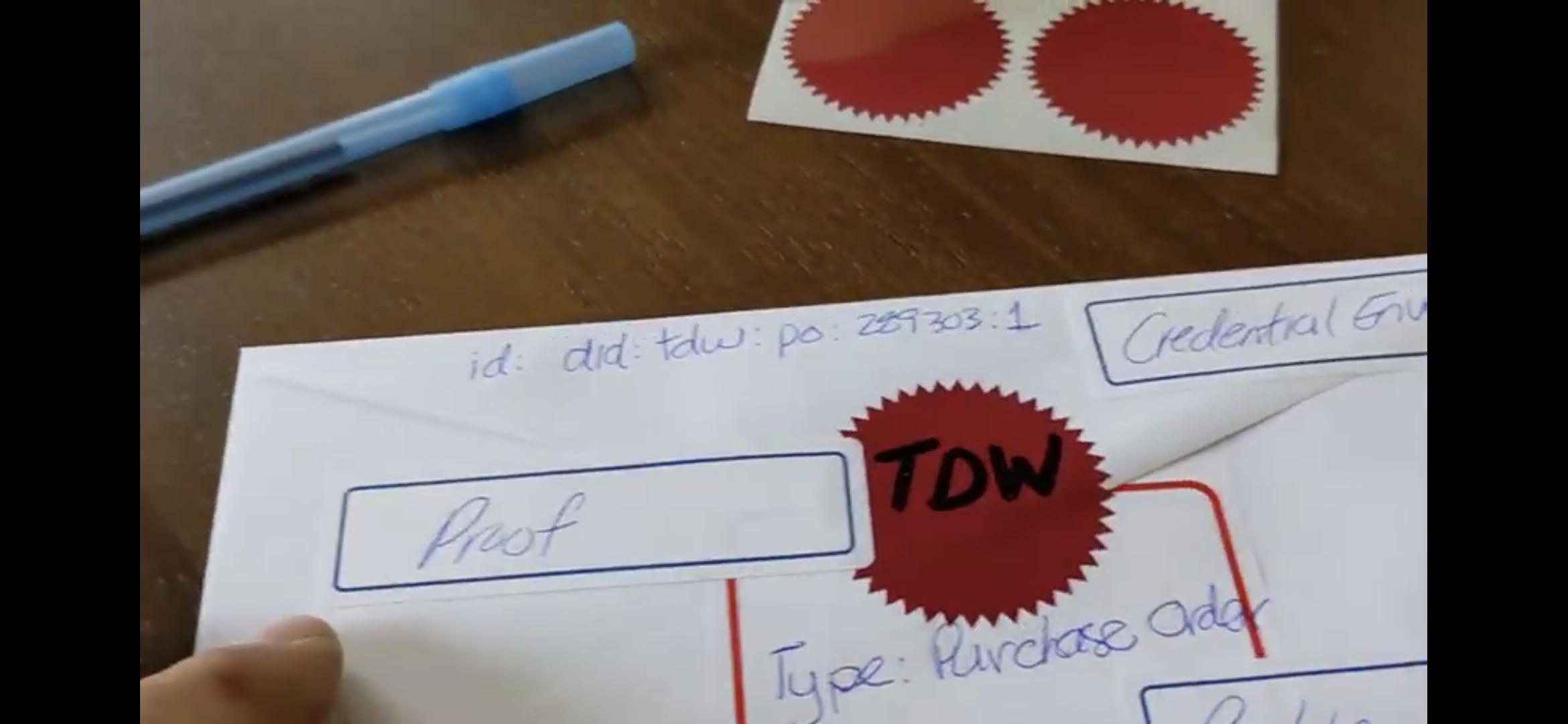- From: Melvin Carvalho <melvincarvalho@gmail.com>
- Date: Mon, 20 Dec 2021 22:25:44 +0100
- To: "Michael Herman (Trusted Digital Web)" <mwherman@parallelspace.net>
- Cc: "dzagidulin@gmail.com" <dzagidulin@gmail.com>, W3C Credentials CG <public-credentials@w3.org>
- Message-ID: <CAKaEYhLBxQ8VckQBKfTxkcJhh9HQT-pw62L7pn=7_ZQADAVgog@mail.gmail.com>
On Sat, 18 Dec 2021 at 13:43, Michael Herman (Trusted Digital Web) < mwherman@parallelspace.net> wrote: > The DID-CORE specification is explicit about how colons can be used in > the method-specific-id "for establishing hierarchically partitioned > namespaces". > > From section 8.1.. > > NOTE: Colons in method-specific-id > The meaning of colons in the method-specific-id is entirely > method-specific. Colons might be used by DID methods > <https://www.w3.org/TR/did-core/#dfn-did-methods> for establishing > hierarchically partitioned namespaces, for identifying specific instances > or parts of the verifiable data registry > <https://www.w3.org/TR/did-core/#dfn-verifiable-data-registry>, or for > other purposes. Implementers are advised to avoid assuming any meanings or > behaviors associated with a colon that are generically applicable to all DID > methods <https://www.w3.org/TR/did-core/#dfn-did-methods>. > Hi Michael Thanks for quoting the spec text. I think you've hit on something really important. So my thought process was as follows: 1. did:method: ## this is a sub protocol 2. did:method:name ## this is a name space within the sub protocol Let's compare with: 1. http: ## this is a protocol 2. http://mycorporation ## this is a name space with in the protocol So the idea is that (1) something that is a protocol or sub protocol, in my mind should be a technical spec, non-proprietary, open And that (2) could be also proprietary, a per company things, for profit etc. As we see with http and the web, that's how it works, http is neutral and any company can have a web site. It's a system that works well With DID's it seems that things are more mixed. Some of the sub protocols or methods in the registry are proprietary security tokens with the aim of monetizing the protocol It would be good to clarify the extent to which did methods can be neutral decentralized protocols, vs centralized, proprietary and monetizable > > Michael > > > Get Outlook for Android <https://aka.ms/AAb9ysg> > ------------------------------ > *From:* Michael Herman (Trusted Digital Web) <mwherman@parallelspace.net> > *Sent:* Friday, December 17, 2021 6:46:17 PM > *To:* dzagidulin@gmail.com <dzagidulin@gmail.com>; W3C Credentials CG < > public-credentials@w3.org> > *Subject:* Re: DID Formal Objection Status Update (Dec 2021) > > Here's an example of an application-level DID method/object name space... > this is an (abstract) example of a purchase VC/application object > identified by the DID: > did:tdw:po:289303:1 > [image: Image] > > > Get Outlook for Android <https://aka.ms/AAb9ysg> > ------------------------------ > *From:* Michael Herman (Trusted Digital Web) <mwherman@parallelspace.net> > *Sent:* Friday, December 17, 2021 6:30:36 PM > *To:* dzagidulin@gmail.com <dzagidulin@gmail.com>; W3C Credentials CG < > public-credentials@w3.org> > *Subject:* Re: DID Formal Objection Status Update (Dec 2021) > > On the Trusted Digital Web they are. > > Please explain your rationale Dmitri. > > Get Outlook for Android <https://aka.ms/AAb9ysg> > > ------------------------------ > *From:* Dmitri Zagidulin <dzagidulin@gmail.com> > *Sent:* Friday, December 17, 2021, 10:23 a.m. > *To:* W3C Credentials CG > *Subject:* Re: DID Formal Objection Status Update (Dec 2021) > > And just to be clear, /none/ of those items that you mention have anything > to do with DID methods. DID method identifiers are not namespaces for any > of those things. > > On Fri, Dec 17, 2021 at 8:10 AM Michael Herman (Trusted Digital Web) < > mwherman@parallelspace.net> wrote: > > There is a bit of an multi-organization-specific complication here: > - how are ABC Grocery's purchase orders (identified by a simple integer PO > number) to be differentiated from David's Cabbages purchase orders (also > identified by a simple integer PO order number from a potentially > overlapping range of PO numbers)? > > In the real world, we need to work with overlapping sets of basic > identifiers that are only unique within a specific realm, for example... > - purchase order and invoice numbers from multiple organizations, > - waybill numbers may already have an industry solution, > - part numbers from different manufacturers, > - objects and collections of objects identified by a GraphQL or OData > query sourced from different realms or collection of realms based on the > same underlying query string > - in-house enterprise application developers, DBAs, and data modelers > creating object name spaces for every object in their enterprise > architecture ... similar/same challenges Implementors currently have > selecting name spaces for their C#, Java, etc. application components. > - etc. etc. etc. > > Apologies if I've ruined your "morning"... 😉🙂, > Michael Herman > > >
Attachments
- image/png attachment: Screenshot_20211217-183951.png

Received on Monday, 20 December 2021 21:26:11 UTC